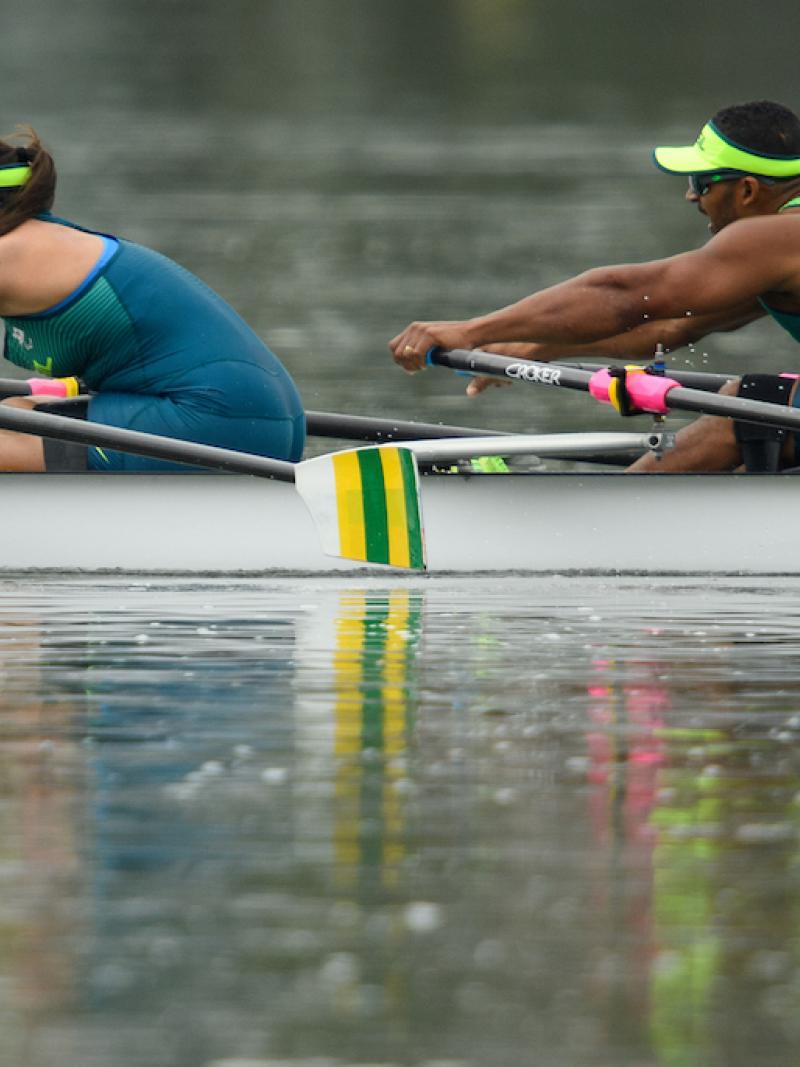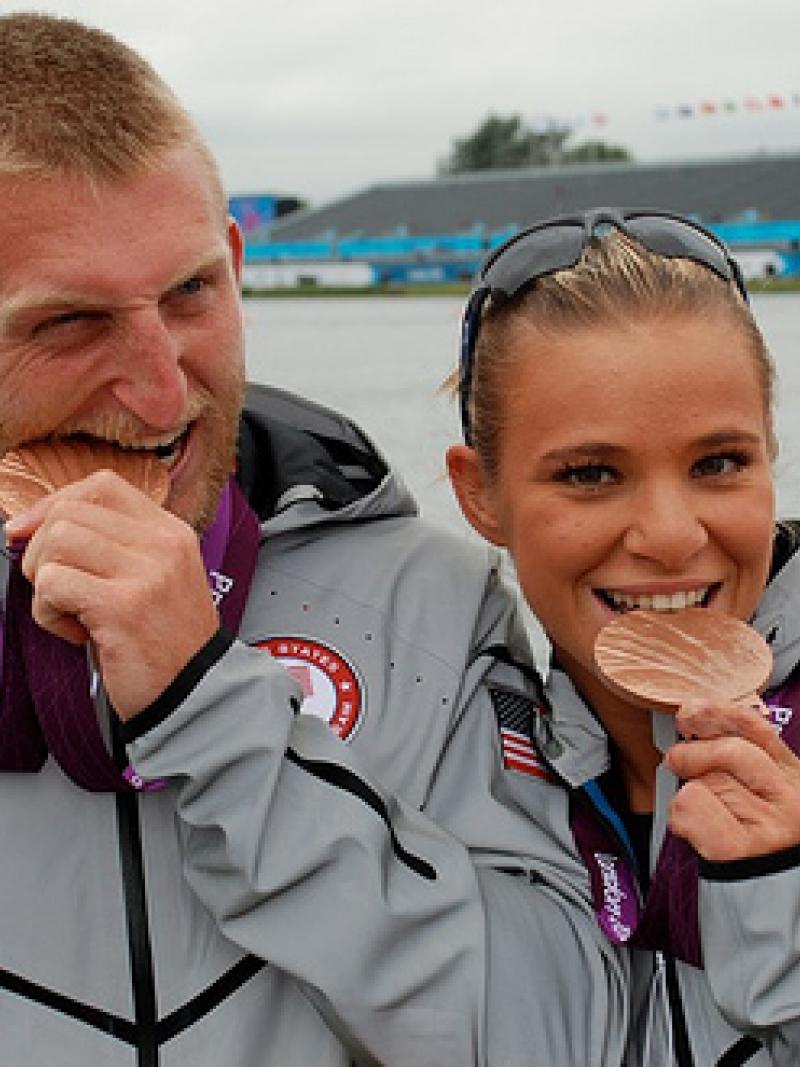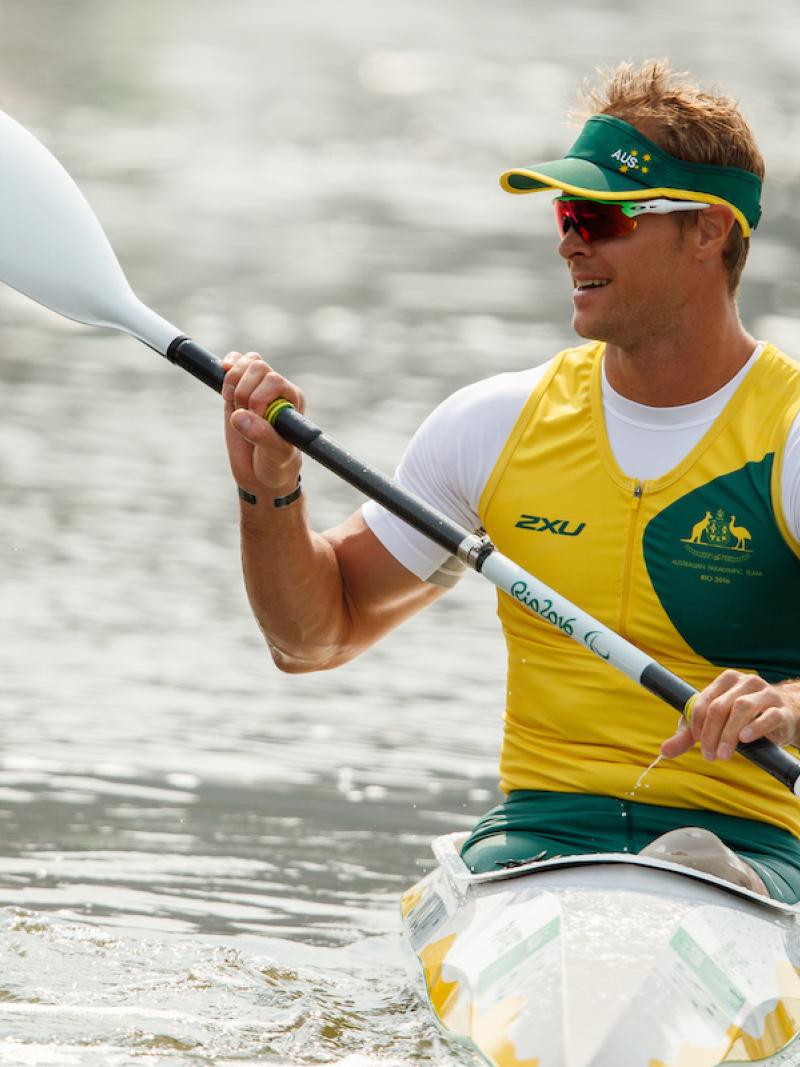Whiteley backs Cancer Research Great Row
The Paralympic champion and cancer survivor has been encouraging others to take on the rowing challenge to raise charity money. 30 Mar 2017
The Great Britain pair of Laurence Whitely and Lauren Rowles take the gold medal in the TA Mixed Double Scu. - TAMix2x Final A at the Lagoa Stadium. The Paralympic Games, Rio de Janeiro, Brazil, Sunday 11th September 2016.
Great Britain’s Paralympic gold medallist Laurence Whiteley has been encouraging people to get involved with the Cancer Research United Kingdom (UK) Great Row challenge, which raises money for the cancer charity through indoor rowing.
Whiteley, a cancer survivor himself, took gold with Lauren Rowles in the TA mixed double sculls at Rio 2016. He helped kick off the campaign at an event in London back on 26 January, where 14 teams battled to complete a marathon on a rowing machine.
In the Great Row, one must complete one of four challenges, ranging from 2,000m to a full 26-mile marathon, during Challenge Week in the run up to the Cancer Research UK Boat Races on 2 April.
Whiteley was diagnosed with bone cancer while still in school. Having grown up as a sporty child, he knew something was wrong when running became difficult and after a while weight bearing became almost impossible.
“I remember one night I hit the right side of my knee against a piece of furniture and to this day is still the most painful thing I have ever experienced. That was the prompt to go and see the GP the next day,” Whiteley said.
While it was originally diagnosed as growing pains, Whiteley returned to the doctor after his symptoms did not disappear with rest.
An x-ray and biopsy showed stage three Osteosarcoma, a rare type of bone cancer most common in teenagers, with a tumour progressing to his right thigh.
“I think I had the x-ray on the Monday; the GP came to our house unannounced on the Wednesday because he had the results that suggested it was cancer; I had a biopsy on the Friday, which confirmed it was cancer and I started treatment shortly after that,” Whiteley recalled.
The early diagnosis was followed by 10 months of chemotherapy, and thanks to the support of medical staff, family and friends, Whiteley has been all clear from cancer for the last 10 years.
“I’m 10 years all clear now so I am very settled into my life post treatment,” he said. “But adjusting to this way of life when I was 15 was a horrendous thing to do. It’s not what teenagers that age are supposed to do. I missed out on a great deal of my teenage years and even to this day I am still learning how to deal with things.”

 Facebook
Facebook
 Instagram
Instagram
 Twitter
Twitter
 Youtube
Youtube
 TikTok
TikTok
 Newsletter Subscribe
Newsletter Subscribe



